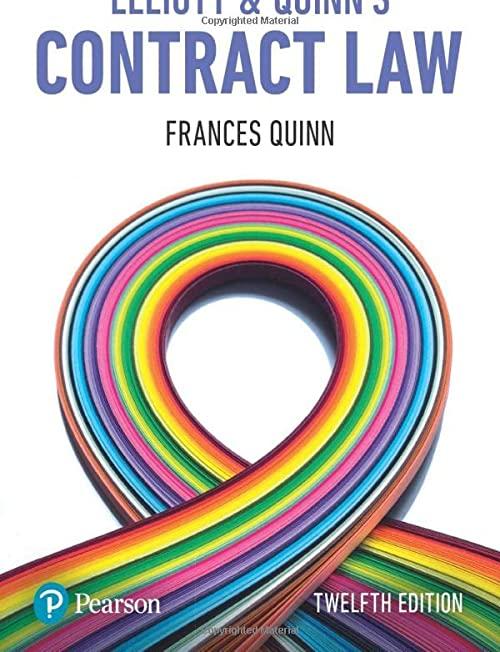Question
In 2011, the Supreme Judicial Court of Massachusetts ruled that the smell of marijuana (or possession of an ounce or less) no longer constituted evidence
In 2011, the Supreme Judicial Court of Massachusetts ruled that the smell of marijuana (or possession of an ounce or less) no longer constituted evidence of a crime, giving law enforcement probable cause to search and seize under the 4th Amendment of the United States Constitution.The case is called Commonwealth v. Cruz.The actual case, as well as a case summary can be found in a self-titled folder on this week's course homepage.Please read the summary, as well as the instructor's notes discussion of this case, and answer the following questions:
What is your reaction to this decision?Do you agree with it?Or should the legislature pass a law stating that even though an ounce or less of marijuana is not criminal/illegal, it can still constitute probable cause under the 4th Amendment?
Please also respond to the post of at least one other student.
(The passage of the new marijuana law in Massachusetts via ballot in 2016 does not affect the Cruz decision.Rather, the courts decision will apply to legalization rather than decriminalization).
Step by Step Solution
There are 3 Steps involved in it
Step: 1

Get Instant Access to Expert-Tailored Solutions
See step-by-step solutions with expert insights and AI powered tools for academic success
Step: 2

Step: 3

Ace Your Homework with AI
Get the answers you need in no time with our AI-driven, step-by-step assistance
Get Started


